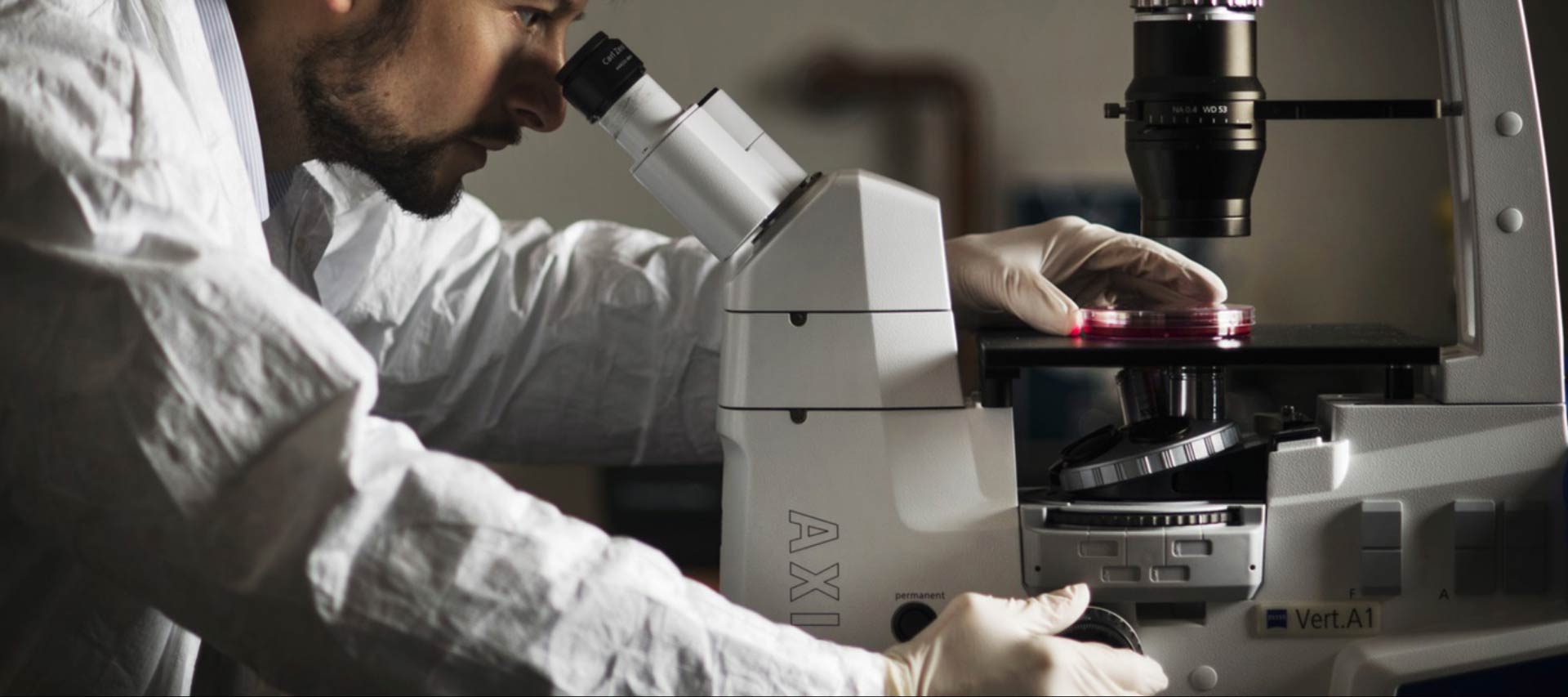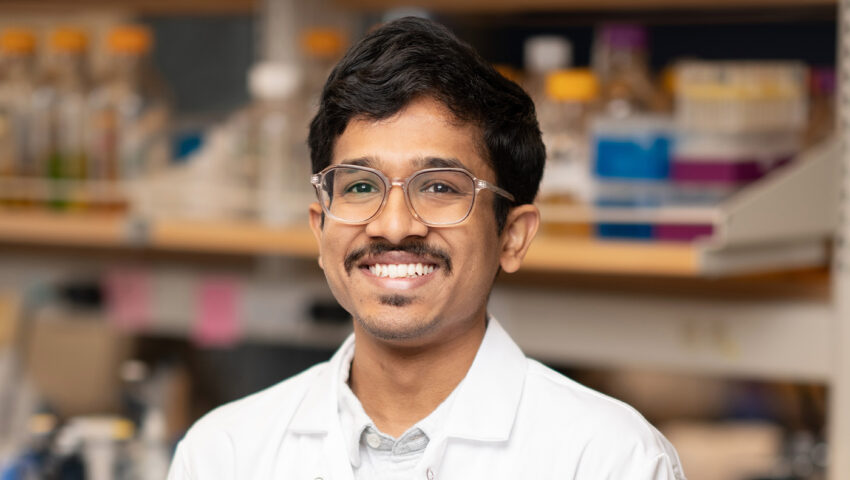
People
We are teachers, leaders, researchers, advisors, business professionals and students. Welcome to Northeastern’s College of Science
Albert-Laszlo Barabasi
News
Embracing the Future: Sacha Sergent’s Commencement Address and Journey with the Northeastern College of Science Class of 2024
Commencement is nearing for the Northeastern College of Science undergraduate class of 2024! This year, at the College of Science graduation, Sacha Sergent will be speaking to her fellow graduates and leaving them with a final hoorah. To get in the excitement of commencement, I interviewed Sacha to learn about her time at Northeastern and what she plans on doing after.
Sacha was born in Paris, France and grew up in Westchester, New York. When she was 8 years old, she toured schools in Boston with her older brother and fell in love with the city.
“I have so many happy memories of us walking around the Faneuil Hall area, taking pictures of all the pumpkins on brownstones, and walking around Kenmore,” she says.
From then on, she knew she wanted to live in Boston.
In high school, Sacha realized she wanted to apply to medical school post-grad but knew there was a chance that she’d change her mind in four years. A school that would give her the opportunity to consider as many options as possible became a priority, and after looking at other schools, it became clear that Northeastern was the place for her.
At Northeastern, Sacha studied Behavioral Neuroscience with her favorite classes being Behavioral Endocrinology; Culture, Tech, and the Future of Health; AI in Health and Wellness; Behavioral Genetics; and Psychopharmology.
Her first co-op was as a medical scribe at South End Community Health Center:
“I loved being a part of the medical team, getting to see doctors go through the medical decision-making process, and getting to interact with patients (especially kiddos!”
Sacha switched it up for her second co-op where she worked in clinical trial development at Prime Medicine in Cambridge. At Prime Medicine, she researched Friedreich’s ataxia, a rare, genetic neurodegenerative disease. She also worked in clinical trial operations and medical writing for their recently FDA cleared Investigational New Drug application for the treatment of Chronic Granulomatous Disease, a rare immunological disease.
Aside from her academic pursuits and professional accomplishments, Sacha was involved in student organizations at Northeastern. Since 2021, Sacha has been a part of CHAARG (Changing Health, Attitudes, and Actions to Recreate Girls), a women’s health and wellness organization that helps students “find their fit” through weekly workouts with local group fitness studios/instructors so members can try different types of movement, as well as socials to build community on campus. She first served as CHAARG’s event coordinator (‘21-’22) then became the club’s president (‘22-’23). This past year, Sacha worked on CHAARG’s national team, managing four executive teams comprised of 35 leaders from other schools around the country. Sacha also taught over 300 group fitness classes at Northeastern!
She has also been involved with NEURONS, Northeastern’s neuroscience interest group. She served as the club’s Public Relations Officer (‘21-’22) and Vice President (‘22-’23. ‘23-’24) where she helped put together last year and this year’s Brain Awareness Weeks, with the themes “Imaging Neuroscience” and “AI in Neuroscience”.
After graduating, Sacha plans on returning to Prime Medicine to continue her work in clinical trial operations and medical writing, leaving behind words of wisdom to her former self: “Follow your passions, lean into your curiosity”.
Congratulations Sacha, and good luck with your future!
Bishwarup Sarkar’s Commencement Address and Reflections on Northeastern’s Graduate Class of 2024
The Northeastern College of Science Class of 2024 is gearing up for commencement! At this year’s graduation ceremony, Bishwarup Sarkar (Bish) will address his peers, delivering a final inspiring message. Eager to capture the anticipation of commencement, I spoke with Bishwarup to delve into his experiences at Northeastern and his post-graduation plans.
Bish is originally from Pune, India, a city near Mumbai, and moved to Boston to complete his second master’s degree at Northeastern. After completing his bachelor’s and first master’s degree in microbiology in India, Bish realized that his academic journey was far from over. With a dream to eventually pursue a PhD, he wanted to gain work experience to complement his research background and his mentor, a previous postdoc at Northeastern suggested he look into Northeastern’s master’s program because of its uniqueness.
“Typically, when international students consider studying in the U.S., they tend to apply to around eight or nine different colleges. For me it was just Northeastern, I only want Northeastern, nothing else,” he says.
For the past two years, Bish has worked as a research assistant in the Antimicrobial Discovery Center (ADC), a lab led by Dr. Kim Lewis. He feels fortunate to have had the opportunity to collaborate with some of the most talented and like-minded PhD students, postdoctoral researchers, and research scientists during his two-year tenure at ADC. He also believes that the experience he gained working in the ADC has immensely helped him these past two years. Through his major, Bish completed a concentration in molecular biotechnology which included courses that were research-oriented but towards the side of industry which aligned with his goals to explore the world outside of academic lab research. Currently, he is completing his co-op at Moderna, where he is exploring the field of process development and RNA sciences.
Bish’s recent industrial experience has shifted his perspective away from immediately pursuing a PhD upon graduating from Northeastern. This change stems from his ongoing pursuit of degrees over the past seven years.
“I’m thinking I’ll work for a couple of years and explore more of the industry side of biotechnology and pharma science. I’m going to go for a PhD, it’s just a matter of time,” says Bishwarup.
Outside of his academic life, Northeastern has provided a “home away from home”, which has been crucial for him as his family and friends are all in India: “Being here in Boston, I feel like I never left my hometown.” Even after visiting his family last December for the first time in two years, he found himself missing Boston. Some of Bish’s favorite spots in Boston are the Boston Public Library and the Charles River. Bish was able to find community at Northeastern through his background in Indian classical music. During his first semester, he auditioned and joined a couple of music groups, where he enjoyed attending events and making new friends.
When asked if there was anything he’d say to his younger self who was just starting university as a freshman, Bish kept it simple: “Trust the process.”
From working in labs, he learned the hard way that things never turn out the way you want it to be – 90% of the time.
“In my academic career, be it in India or the U.S., I never seemed to land my first choice. I thought I wasn’t good enough, but every outcome always turned out to be the best option for me,” says Bish.
Something did go his way though, and that is the opportunity to speak at this year’s graduation ceremony. This is the first time Bish is attending a graduation ceremony. After completing his bachelor’s, he had to move to another city for his first master’s which conflicted with his undergraduate graduation. Then the pandemic disrupted his master’s ceremony and eventually, he was in Boston when the ceremony finally happened. Bish revealed that his mother’s dream since he was a child had been to see him and his older brother in a cap and gown at a graduation ceremony.
“Attending the COS graduation ceremony and the Fenway commencement is very emotional for me and my family. They are excited to see their younger brother and their kid stand up there on the podium, talk, and get his degree,” he says.
Bish consistently attributes his achievements and success stories to the unwavering support and guidance he received from his family and friends. He’s extremely thankful to all his friends from his lab, classroom and his seniors who helped him every step of the way throughout his two-year journey at Northeastern. He’s particularly thrilled that his older brother can make it, as he’s been one of his biggest inspirations since childhood.
Congratulations Bishwarup, the College of Science and the community at Northeastern looks forward to celebrating you and all your accomplishments.
To wrap it up, here are some concluding remarks from Bishwarup:
“Trust the process. Make as many friends as possible. Live life and enjoy!!”
Unveiling the Potential of Bismuth Ferrite in Antiferromagnetic Spintronics – A Q&A with Professor Paul Stevenson
In their recent publication, physics assistant professor, Paul Stevenson, and his collaborative team from Northeastern University, Brown University, Rice University, and University of California Berkeley reveal groundbreaking advancements in utilizing isolated spins in solids. Their work, enabled by the Quantum Materials and Sensing Institute, pioneers ultrasensitive nanoscale sensors and quantum communication technologies. Through interdisciplinary efforts, they delve into probing nanoscale biophysical dynamics and advancing antiferromagnetic spintronics, particularly in electric-field controllable magnetic devices using materials like Bismuth ferrite (BiFeO3).
To learn more about their research, I spoke with Paul Stevenson discussing the implications of new materials in the world of physics and the importance of collaborative research. Read the publication, “Persistent anisotropy of the spin cycloid in BiFeO3 through ferroelectric switching,” here.
What first drew your attention to antiferromagnetic spintronics, particularly in relation to controlling spin configuration on nanometer scales?
The overall motivation is driven by need to make more energy-efficient computers. The amount of energy that we spend doing computation is growing much faster than we generate energy. This drives the need for low power and more efficient ways to do computations, so we need to find alternatives to serve traditional silicon transistors.
Finding alternatives is difficult because we’re already so good at making silicon devices, so there isn’t much room to keep improving. It’s scary and exciting because it suggests we should start looking elsewhere and for new types of materials that aren’t in conventional silicon chips, which is where bismuth ferrite comes in.

Could you explain why bismuth ferrite (BiFeO3) is considered a promising material for electric-field controllable magnetic devices, given its multiferroic properties?
The main attractive things about bismuth ferrite are that we can change its magnetic properties with voltages and that it works at room temperature. There are a lot of interesting multiferroic materials from a physics and fundamental science perspective, but many of them only work at very low temperatures. If we’re trying to be energy efficient, cooling things down to liquid nitrogen temperatures is the opposite of what we’re looking for.
From a physics perspective, it’s interesting because a lot of very complicated behavior bundled into one package. The things that make it useful (that the different types of order all talk to each other) also make it difficult to understand, which is why it’s taken such a long time to start maturing as a technology.
Piece by piece, we are learning how all these different parts fit together. How magnetism interacts with its response to electric field and how that does or doesn’t couple to strain in the material, and how that changes depending on the different ways that we make or treat it.

What were some of the key challenges you encountered during your research, and how did you overcome them?
This is one of the more straightforward research projects I’ve done, thanks to the new tools and equipment in the Quantum Materials and Sensing Institute. There’s a lot of complicated interpretation that goes into the data, however, but thankfully we’ve had a lot of support from collaborators and a lot of great work that’s been done in the field already that helped us understand what we were seeing.
The conventional challenged with this research is that the magnetism varies on length scales of tens of nanometers, which makes it great in terms of being able to make things very compact b But it becomes very difficult to find experimental techniques that can be sensitive and reach down to those length scales.
That’s where the scanning diamond magnetometer that we have at the Quantum Materials and Sensing Institute comes in because it combines that sensitivity and that very high spatial resolution.
How do you envision your study’s findings influencing future research directions in antiferromagnetic spintronics?
The field of antiferromagnetic spintronics is a fascinating and growing field by itself. Antiferromagnetic spintronics is a subset that’s still growing and becoming more and more exciting because it has a lot of potential for very high-speed operation. Often in this field, it’s always a case of experimental techniques catching up to the need for what we don’t know. It’s really an area where big science questions are driving the development of new techniques.
In the case of Bismuth Ferrite, there are lots of models out there lots of global probes that say that some sort of interesting magnetism is present, but there’s really no technique that’s able to directly correlate it with other experimental imaging methods like we can or watch how it changes as we apply a voltage. In this paper, we measured the structure of the polarization and magnetism, and then overlayed them on top of one another. We can see that there’s a perfect one-to-one correspondence; we don’t need to do any complicated analysis to convince ourselves they’re correlated.
In a way, it’s a very basic capability that we’ve been able to develop, but a very important one. We want to see in real space what’s happening with magnetism without having to model or infer what’s happening from a less direct probes.
Lastly, what excites you the most about the potential applications of BiFeO3 and similar materials in the development of advanced spintronic devices?
The thing that really excites me about bismuth ferrite is the range of different behaviors we can get from the slightest tweaks to the materials in the system. We can get lots of different types of magnetic ordering all coming from what looks like almost the same structure, which suggests there’s a huge amount of physics and interactions between all these things that we can access and start to systematically explore in these systems.
The applications in low power or high-speed electronics are important. But what really gets me excited is the physics potential. There’s still a long time before this becomes a commercially-available, scalable technology, but we’ve made an important step in showing that we can deterministically control the magnetism in systems like these.
Photos courtesy of Paul Stevenson
The untold story of how two Northeastern professors analyzed moon rocks for NASA a half-century ago
The rocks were billions of years old. But they were new to the Earth. They were sent by NASA in 1972 via special delivery to Robert Lowndes and Clive Perry, physics professors at Northeastern University, who opened the boxes in their secured labs in the basement of Dana Hall.
“It was very exciting,” Lowndes says.
The rocks and the accompanying soil samples had been collected from the moon by the Apollo astronauts. Lowndes and Perry were among the small, initial group of U.S. professors selected by NASA to perform experiments on the moon rocks.
The first shipment arrived two years after astronauts Neil Armstrong and Edwin “Buzz” Aldrin became the first human beings to land on the moon.
“The rocks were quite small, an inch or so is what I remember,” Lowndes says. “And then we also got the soil samples, which were powders.”
The Northeastern physicists would receive multiple shipments of lunar samples that had been retrieved by the astronauts of Apollo missions 11, 12, 14 and 15 from 1969 to 1971. The rocks and powders were arguably the most precious materials in the world at that time — more valuable and rare than any earthbound piece of jewelry or source of energy.
Read more from Northeastern Global News
Photo by Matthew Modoono




